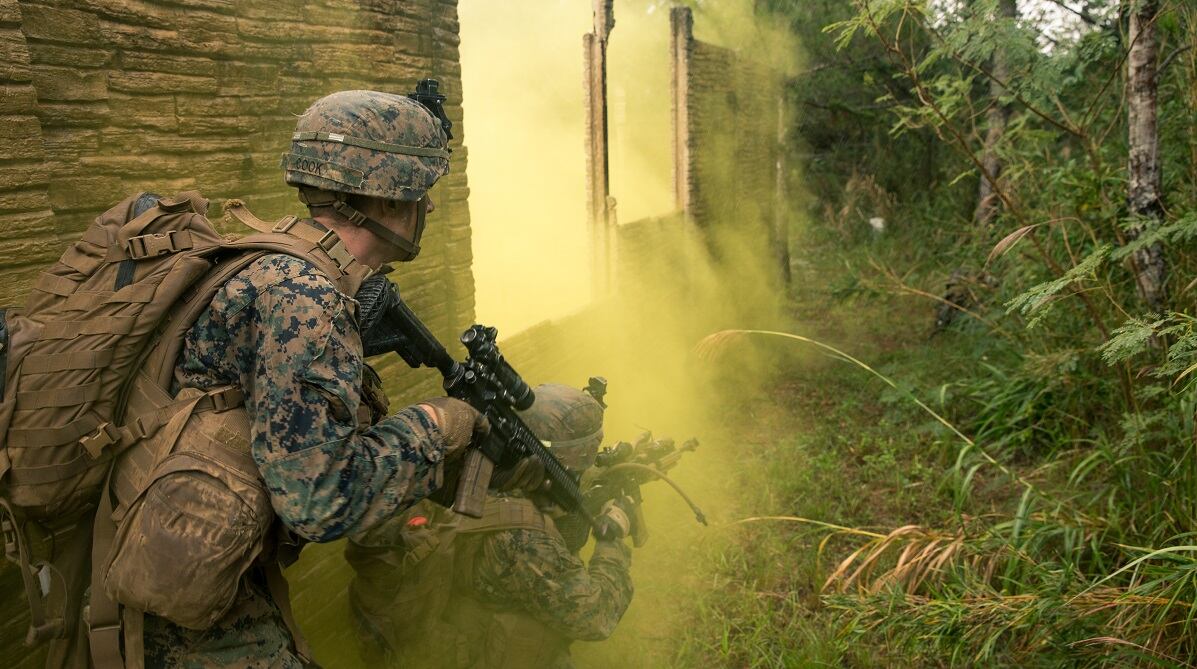Marines with the logistical element of the 31st Marine Expeditionary Unit went to the island of Tinian, Northern Mariana Islands, as part of an early December exercise testing the tactics required to operate in a contested littoral environment.
The Marines with Combat Logistics Battalion 31 were tasked with maintaining logistics support to the MEU despite operating separated, all while avoiding the simulated enemy and maintaining self sufficiency, according to a press release from the unit.
RELATED

The logistics Marines set up a dispersed command and control element that was constantly on the move, used atmospheric water generation and supply drops and other modern tactics to test the tactics required for operating in littoral areas, the press release said.
Increasing the Corps’ ability to operate in contested littoral areas in the Pacific has been a major focus for Marine Corps Commandant Gen. David Berger.
Berger sees increased Marine prowess in the littoral environment as the Corps’ main role in deterring and ultimately winning a potential future war with China.
The threat of long-range cruise missiles and the geography of the Pacific Ocean with scores of island chains separated by thousands of miles of water combine to make split operations a necessity if the region become front lines of the next big war.
In prepping for that war, the 31st MEU in 2019 conducted a simultaneous split operation, with Marines spread out over 4,000 miles, Marine Corps Times previously reported.
By putting only the logistics element of the MEU on the Tinian, Northern Mariana Islands, the Corps continued to test and experiment with its separated operations and littoral capabilities.
“Combat Logistics Battalion 31 is executing a deliberately designed experimentation program focused on supporting service-level 21st Century combat logistics support," Lt. Col. Christopher Johnson, the unit’s commander, said in the press release. “We are learning to dynamically task organize our logistics command element in support of distributed forces, develop survivable command and control to support logistics command requirements, and employ proven Marine Corps field craft as the basis for our tactics."
As part of the exercise, the unit used a tactic called “21st century foraging," where small unit leaders bought necessary supplies from local vendors with the goal of reducing the unit’s footprint as much as possible.
"Twenty-first century foraging is a future operations requirement, and one we are constantly improving on,” Johnson said in the release.
“Incorporating organic field disbursing and supply capabilities into our concept of support will make us more expeditionary, flexible, and responsive."





